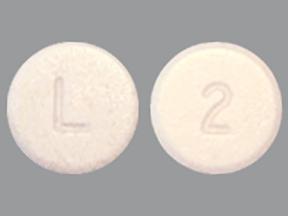Harliku
Pronunciation: Har-li-koo
Generic name: nitisinone
Dosage form: oral tablets (2 mg)
Drug class: Miscellaneous metabolic agents
What is Harliku?
Harliku is used to reduce levels of homogentisic acid in the urine of adults with alkaptonuria (AKU), a very rare genetic metabolic disorder. It is an oral tablet taken once a day.
Harliku works by blocking an enzyme called hydroxyphenyl-pyruvate dioxygenase that works earlier in the tyrosine breakdown pathway than the faulty enzyme in alkaptonuria. By inhibiting this upstream enzyme, nitisinone prevents tyrosine from being converted into homogentisic acid, reducing the toxic buildup that causes joint damage and tissue darkening in alkaptonuria patients. Harliku (nitisinone) belongs to the drug class called hydroxyphenyl-pyruvate dioxygenase inhibitors.
There is no routine dietary restriction requirement for AKU patients taking Harliku. However, in patients who develop keratopathies (damage to the cornea), your healthcare provider will monitor your plasma tyrosine levels and implement a diet restricted in tyrosine and phenylalanine to keep the plasma tyrosine level below 500 micromol/L/L. They may also temporarily stop Harliku until your symptoms resolve.
Harliku for alkaptonuria gained FDA approval on June 10, 2025. Nitisinone was first approved for hereditary tyrosinemia type 1 (HT-1) on January 18, 2002.
- Harliku's FDA approval was based on a randomized, no-treatment clinical trial of 40 AKU patients conducted by NIH's National Human Genome Research Institute.
- Patients showed significant improvements in quality of life measures, 6-minute walk test performance, and hip mobility, while untreated patients experienced a significant decline.
Side effects
The most common side effects of Harliku are:
- elevated tyrosine levels
- keratitis (inflammation of the cornea of the eye)
- thrombocytopenia (low platelet counts).
Serious side effects and warnings
Harliku may cause the following serious side effects:
- Eye problems and skin plaques from high tyrosine levels: If your diet contains higher than normal levels of tyrosine and phenylalanine, blood tyrosine levels can rise dangerously high (above 500 micromol/L). This can cause:
- Eye problems and vision symptoms
- Painful, thick skin patches on the palms and soles of the feet
Urgently talk to your healthcare provider if you have eye symptoms. They should check your blood tyrosine levels, perform regular eye exams before and during treatment, impose dietary restrictions, or temporarily stop treatment if needed.
- Low blood cell counts. The medication can reduce white blood cells (which fight infection) and platelets (which help blood clot). Doctors need to regularly monitor these blood counts to ensure they stay at safe levels.
To report suspected side effects, contact Cycle Pharmaceuticals at 1-855-831-5413, or the FDA at: 1-800-FDA-1088 or www.fda.gov/medwatch.
Related/similar drugs
Before taking
Before taking this medicine, tell your healthcare provider about all your medical conditions, including if you have:
- Any eye problems
- Are pregnant or planning to become pregnant. It is not known if Harliku is safe for pregnant women.
- Are breastfeeding. It is not known if Harliku passes into breastmilk.
How do I take Harliku?
Follow all directions on your prescription label and read all medication guides or instruction sheets. Your doctor may occasionally change your dose. Use the medicine exactly as directed.
- Harliku is taken once a day.
- Take with or without food.
Dosing information
Dose of Harliku for Alkaptonuria
- 2 mg once daily
What happens if I miss a dose?
If a dose of Harliku is missed, do not administer two doses at once to make up for a missed dose. Take the next dose at the scheduled time.
What happens if I overdose?
Seek emergency medical attention or call the Poison Help line at 1-800-222-1222.
What other drugs will affect this medicine?
Other drugs may affect Harliku, including prescription and over-the-counter medicines, vitamins, and herbal products. Tell your doctor about all your current medicines and any medicine you start or stop using. Especially tell your healthcare provider if you take:
- CYP2C9 medications, such as tolbutamide, talk to your healthcare provider about cutting those medication doses in half. This is because Harliku can interfere with how your body processes these drugs, making them more potent.
- CYP2E1 substrates, such as chlorzoxazone. Harliku may make these medications less effective.
- OAT1/OAT3 Medications, such as furosemide. Avoid taking Harliku with medications that use transporters called OAT1 or OAT3 to move through your body. Taking them together could make the other medication build up to dangerous levels and cause harmful side effects.
This is not a complete list of interactions. Talk to your healthcare provider about what medications are likely to interact with Harliku.
Storage
Store Harliku at room temperature in the light-resistant container that it is dispensed in. Keep the container tightly closed.
Ingredients
Active ingredients: nitisinone 2 mg.
Inactive ingredients: glyceryl dibehenate and lactose monohydrate.
Manufacturer
Harliku is manufactured by PCI Pharma Services, 23-24 Tafarnaubach Industrial Estate, Tredegar, Gwent, NP22 3AA, United Kingdom.
References
More about Harliku (nitisinone)
- Check interactions
- Compare alternatives
- Drug images
- Side effects
- Dosage information
- During pregnancy
- FDA approval history
- Drug class: miscellaneous metabolic agents
- Breastfeeding
Patient resources
Other brands
Professional resources
Other brands
Related treatment guides
Further information
Always consult your healthcare provider to ensure the information displayed on this page applies to your personal circumstances.

